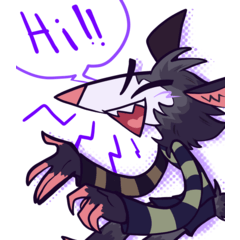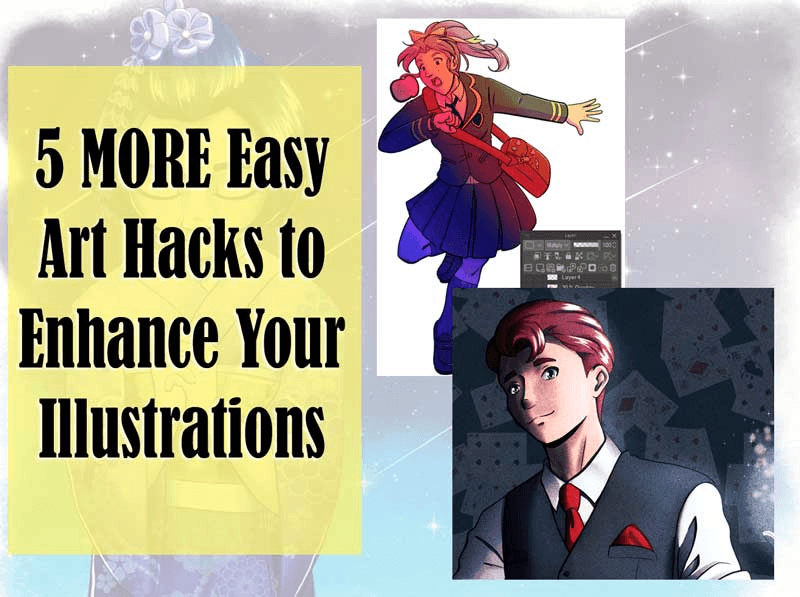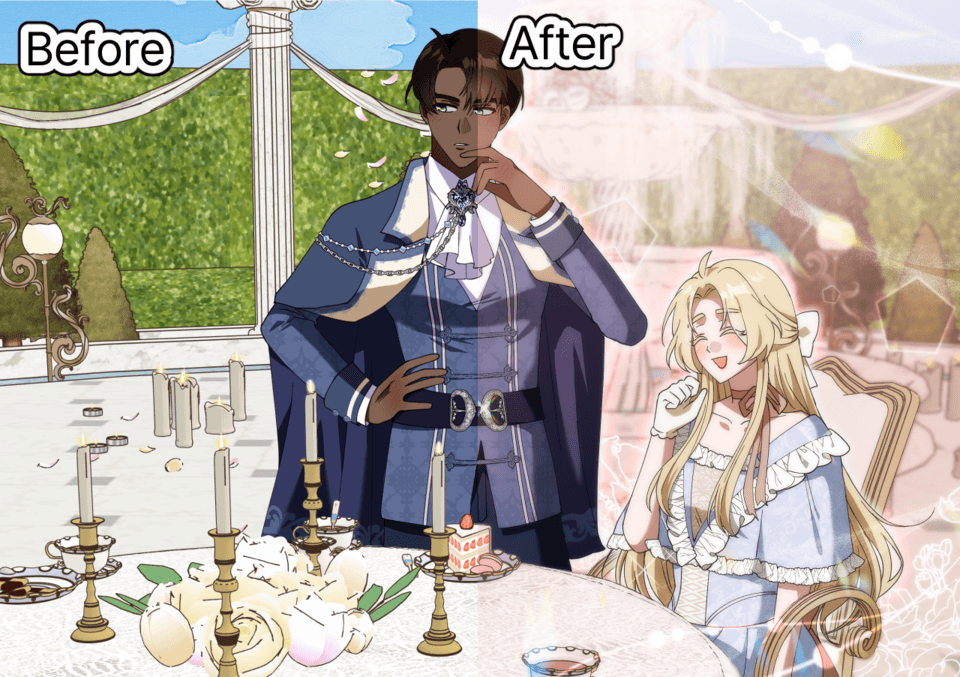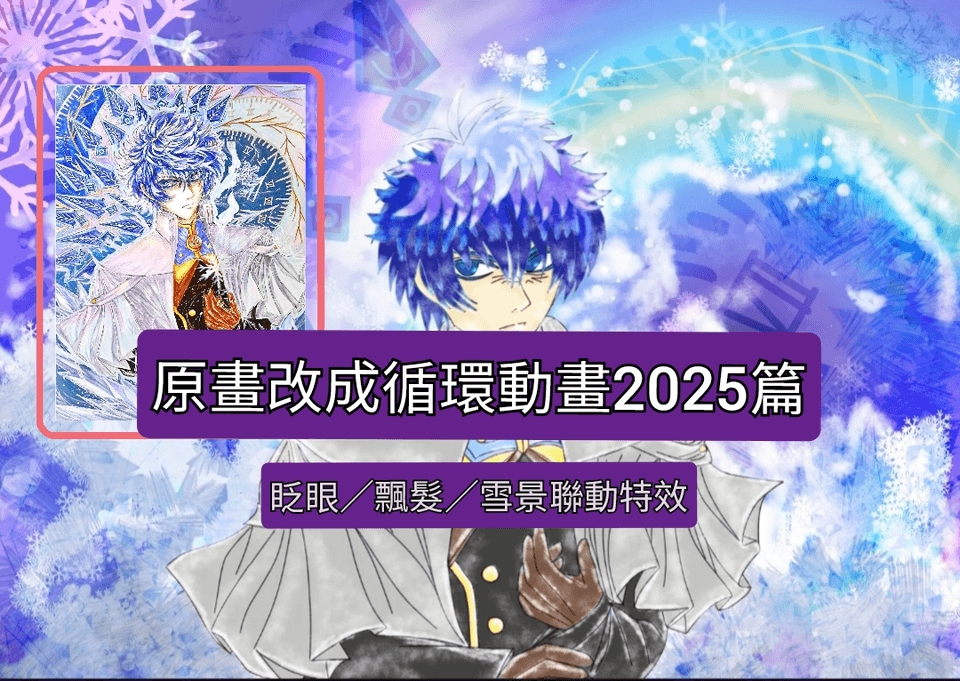Making Effective Magical Fire
Intro
Hey Illustrators!
So, you looking to make a character that uses some kind of magic? Well, why don't I take you through the process of making a character using the element of fire!
This shouldn't be a long process and it heavily depends on how many elements you add overall to create the effect.
Let's get cookin'!
1. Posing and the Main Illustration
To me, what makes a very effective image of using magic is how that said magic is applied.
If you just make a staff with some kind of crystal, orb, etc. on the end you have to think about how the pose conveys what the character has to do.
For my example, we will not be using a tool but instead, incorporate it into the character themselves.
Above you can see the line art I made of a tiger character using a karate stance. We will be placing the magic along the hands, wrists, upper forearms, and tail of the character as we want it fo feel like they are used as an offensive/defensive move.
2. Color
For my image I want the fire to stand out on the character and their clothing, so I decided to make their main garb a bright blue color.
Not only does this color work well with the warmer tones of fire, but it will help make the character stand out against the background we will add as well.
Also notice that I have the line art blending into the color below. I tend to put my line art at a 85% transparency and using the Mulitply Layer Blending Mode.
It doesn't matter if you are a painter or an illustrator, or if you have lines or no lines, as this shouldn't hinder you ability to add the magic elements.
3. Room Lighting and Splash Lighting
For my illustration, I am keeping the background simple.
It will just be a gradient of dark red from the top to a bright red on the bottom.
On the character in the first image, to show that the light of the room is affecting the character we can add a bit of red from the bottom and gradually brush on the outer edges of the character.
On the 2nd image, we will be adding a gradual shadow on the top of the character. This will have the effect of bringing forward the fire and making it seem more bright than it would if we didn't have the shadow.
The Shadow will use the Layer Blending Mode Muliply.
4. Rim Lighting
While not a super realistic addition rim lighting is often used in photography, movies, and art to help bring a character forward from the background and make it more interesting to look at for the viewer.
Here on the character above we have added a rim light on his left shoulder and this light spreads around his shoulders, onto his head, and onto his arm.
This light uses the Layer Blending Mode Add Glow.
We also add a reflection on the eyes and teeth so that the character doesn't have "dead eyes". A little glint of light on a chracter's eyes quite simply is super effective at making people look alive!
5. Making Fire Feel Natural
For this step, all you need is the Smooth Watercolor Brush included in Clip Studio Paint!
First, you want to check that your color stretching is set to 85%. You don't need to really go higher, but if you do it lower it will make your brush less effective at pulling the paint.
On the first image, we see that I go around and lightly add patient on the edges of the arms and fingers. We don't want to overwhelm the image with detail in the middle as fire is a plasma that is fairly smooth in the core.
What you want to do it when you add a stroke you go back over it lightly with a slight wiggle motion going towards the top of the piece. Fire is affected by gravity so you want it to aim upward as best as you can. Doing this process over and over again will give you a blended look to the fire and makes it feel like it has volume and is attached to the figure.
On the second image we are adding a layer of the same orange color used above, but this time we will be using an airbrush to add the core of our fire.
For both steps the layers should be set to Add Glow to make the fire glow!
6. Fire is a Lightsource!
Fire, like anything bright, is a light source and will affect the world around it!
So if you want to make sure the fire feels like it isn't just on one spot, make that light spread across items and characters.
As seen in the image above, we can see the hands are shining light onto the shirt and the chin of the character. This helps shows the closeness of the light and that it isn't just stopping out of nowhere.
7. Final Result
Here is the final result of putting all of the elements together in one image!
Now while it isn't perfect, it definitely is a far cry from where we started with it just being flat color.
Some additional things that can be further incorporated into the image could be:
More Accurate Fire Reflections in the eyes
A Temperature Overlay bringing all elements under the same lighting color
Crackle and Sparks from the fire
Honestly, it really depends on the artist and where they feel like they can "stop" working on a piece and call it finished.
Conclusion and Bonuses
Above you can see the process of this piece and follow along using the labeled chapters and this article. I hope that this helps you understand a bit more how to make an effective fire in a magical sense.
Before you go, I would like to show how separating all of the elements into their own layers can let you do quick changes to the scene.
By simply making copies of the layer and applying a gradient map we can totally change the colors of the scene!
We could make it purple!
Maybe you prefer Green?
Or how about the classic Black and White?
Anyways, I hope you enjoyed reading this!
Please share it around with your illustrator friends or take a chance and follow along with it!
I'm always excited to see what people can do, so if you'd like to show me what you've made @ me on Twitter:
Or Instagram:
Take care!
























Comentario